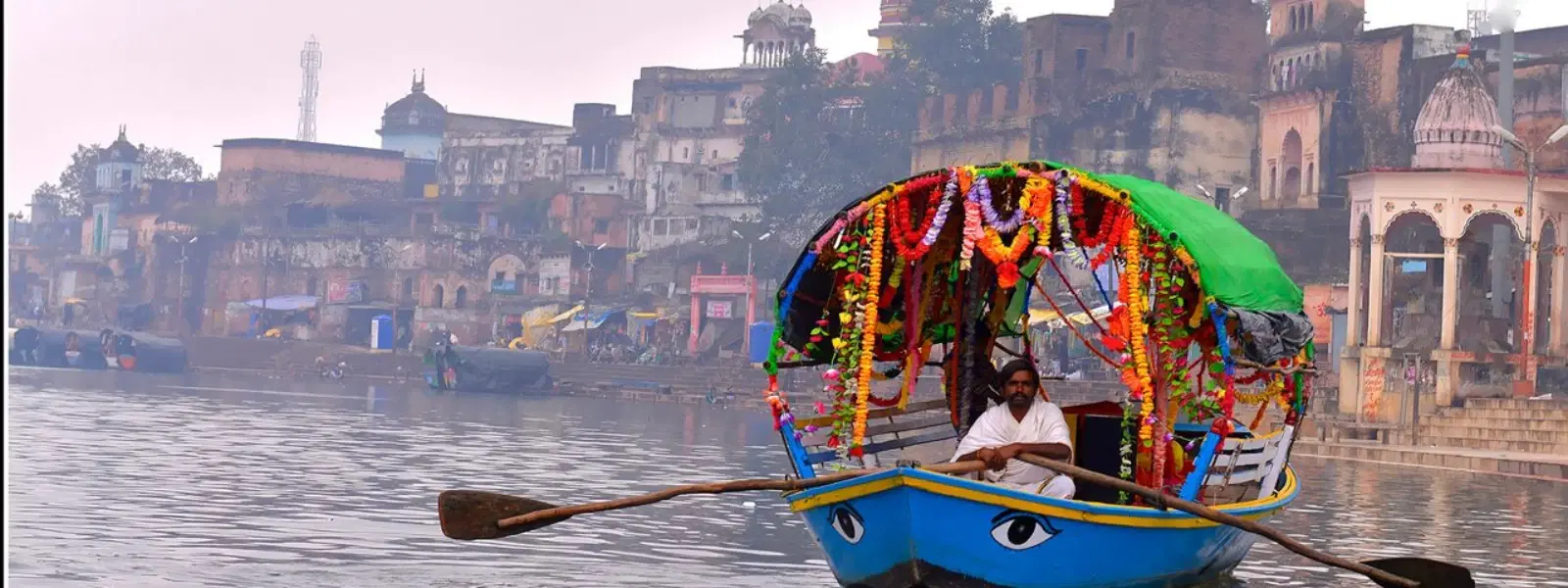
Hotels
•04 min read

Flowing rivers have long inspired a symphony of traditions across India, where the charm of river music rituals captivates locals and travelers alike. These enchanting ceremonies, blending ancient chants with the soothing sound of flowing water, provide a unique portal into the country’s cultural heritage. In this guide, you will discover a curated checklist of villages with river music rituals to visit, learn about the traditions behind these ceremonies, and gain insights into experiencing them respectfully.
River music rituals are cultural ceremonies performed by communities near rivers. These rituals combine traditional river songs, chants, and instrumental music to honor the life-sustaining force of water. They are deeply rooted in spirituality and serve as communal expressions of reverence toward nature.
Rivers have always been celebrated as lifelines and muses. They influence creativity, giving rise to musical ceremonies that evoke the natural rhythms of flowing water. Across India, such rituals underscore a belief that nature and music share a divine harmony, a sentiment expressed through both vibrant ceremonies and reflective chants.
Venturing into villages with river music rituals offers a chance to immerse yourself in authentic cultural experiences. These visits allow you to witness serene natural landscapes, hear traditional instruments such as flutes and drums echo in the air, and participate in ceremonies that celebrate both community and nature. Whether you are a wanderer seeking spontaneous adventures or a planner aiming for meaningful cultural exploration, these destinations promise experiences that resonate deeply.
In Varanasi, the Ganga Aarti is an iconic river music ritual where devotees gather along the Ganges at dusk. The ceremony is a mesmerizing blend of traditional instruments, rhythmic chants, and devotional songs, creating an atmosphere of deep spirituality and communal celebration.
Omkareshwar is known for its soulful Narmada Aarti. Here, the residents perform ritualistic music along the Narmada River with traditional drums and bells, making the ceremonies spiritually enriching and a must-experience for lovers of cultural rituals by rivers.
While Can Tho is located in Vietnam, its inclusion in this discussion highlights the global allure of river-inspired folk music. The Mekong Delta’s vibrant traditions, celebrated through folk music, remind us of the universal connection between water and cultural expression.

In the villages along Papua New Guinea's Sepik River, music rituals center around ceremonial melodies and traditional instruments. These ceremonies showcase the role of community participation and symbolism that is similarly revered in Indian practices.
Nestled in the Himalayan foothills, Rashol offers an intimate glimpse into spiritual river music rituals. Though lesser-known, its ceremonies are a profound celebration of music and nature, creating a harmonic balance that speaks to the soul.
The heart of these rituals lies in traditional instruments such as flutes, drums, and stringed instruments. Their rhythmic sounds are not merely musical; they are deeply symbolic, representing the heartbeat of the community and nature's pulse.
Many river music traditions are inspired by the sounds of nature. The gentle flow of water, rustling leaves, and the chirping of birds often find their way into the chants and melodies, making the rituals deeply evocative and reflective of the natural landscape.
The communal aspect is essential in these ceremonies. Villages with river music rituals emphasize inclusivity and shared cultural heritage. Each note and chant contributes to a broader narrative of hope, unity, and respect for nature.
Before attending a ritual, it’s important to learn about local customs and etiquette. Dress modestly, observe silence during key moments, and be mindful of the sanctity of the space. Respectful behavior is paramount when partaking in cultural ceremonies.
Timing can significantly enhance your experience. The best moments to witness these rituals are during local festivals or seasonal ceremonies, such as post-monsoon celebrations or harvest festivals when the river's role is celebrated in full bloom.

Traveling to villages with river music rituals provides an opportunity to support local artisans and performers. Engaging with the community by purchasing handmade crafts or contributing to local initiatives helps sustain these treasured traditions.
Many river music rituals are deeply tied to agricultural cycles and seasonal changes, symbolizing the harmony between humans and nature. For example, the Mekong Delta's folk music often celebrates the river's role in sustaining life and livelihoods.
River music rituals are cultural ceremonies performed near rivers that involve traditional music, chants, and symbolic acts to honor nature and community heritage.
India stands out for its rich traditions along rivers, though countries like Vietnam and Papua New Guinea also host villages known for their unique musical ceremonies.
Visiting during local festivals or specific seasons, such as post-monsoon or harvest periods, guarantees an authentic experience of these vibrant cultural rituals.
Many rituals welcome tourists, but it is crucial to approach them with respect and sensitivity, honoring local customs.
Engage with local artisans, attend performances, and consider buying handcrafted items to help sustain traditional practices.
Exploring villages with river music rituals is a journey into the heart of cultural artistry and spiritual tradition. Whether it is the soulful Ganga Aarti of Varanasi or the intimate ceremonies of Rashol, each destination offers a unique melody that tells the rich story of local life. By appreciating these celebrations and supporting the communities behind them, travelers can experience the timeless connection between music, culture, and nature.